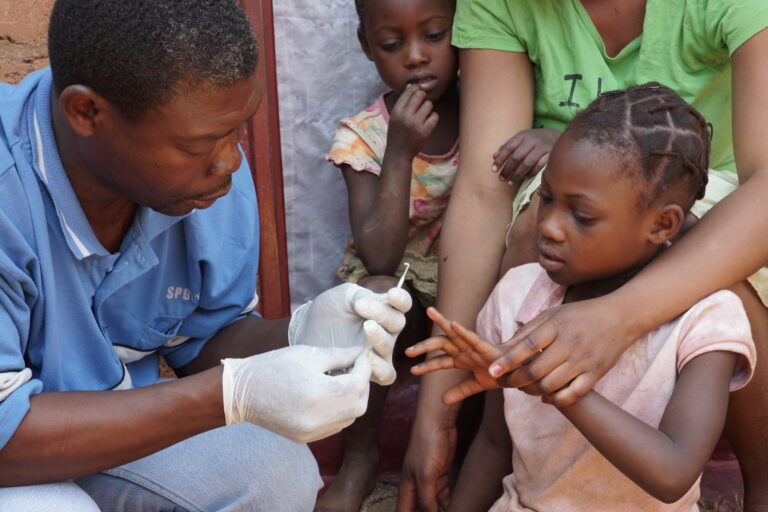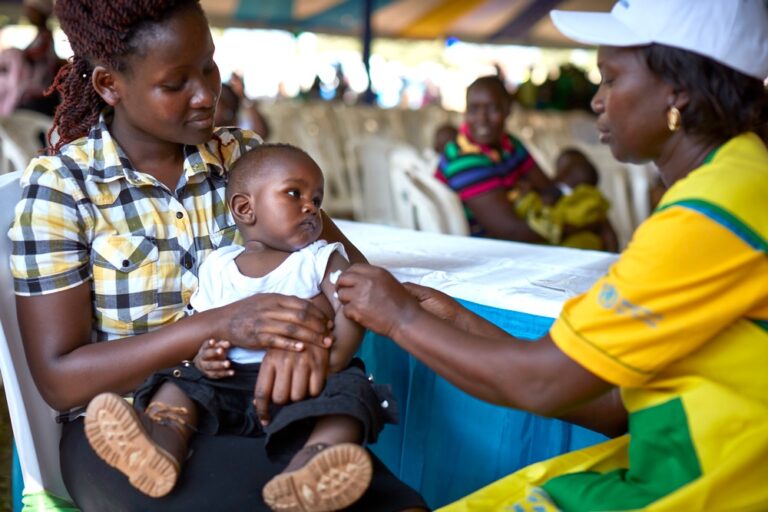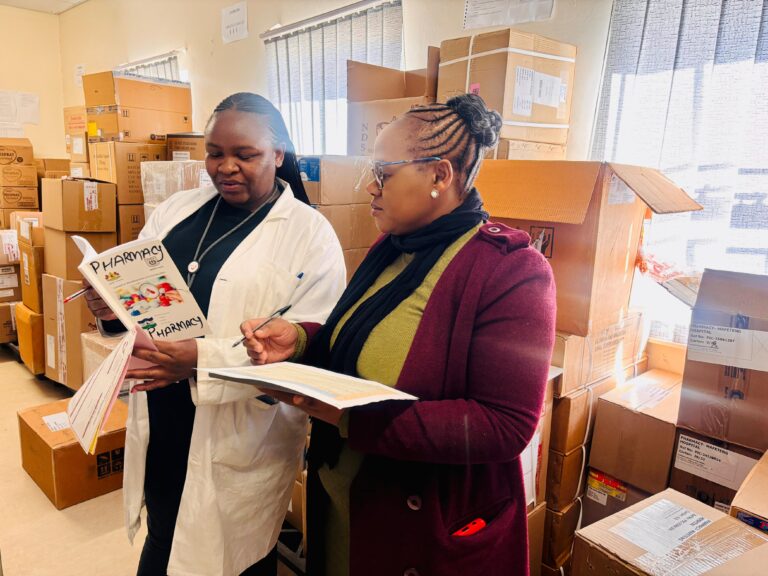Akros recognized for its digital approach supporting PMI VectorLink Zambia
Highlights
· Nationwide impact: Digital microplanning maps and Reveal platform deployed to strengthen Zambia’s vector control campaigns.
· High coverage achieved: Over 93% spray coverage reached in key districts like Nchelenge and Chadiza.
· Equitable access: Tools illuminated underserved and hard-to-reach communities to ensure universal coverage.
· Open and sustainable: Data and tools integrated with Zambia’s eHealth systems and shared via USAID’s Development Data Library and GRID3 Data Hub.
“These tools have transformed how Zambia’s malaria program plans, delivers, and monitors interventions—ensuring every community is reached.”
— Christina Riley, Portfolio Lead, Akros
Empowering Zambia’s Malaria Program Through Digital Tools
Akros is proud to highlight its innovative use of geospatial technologies to strengthen malaria vector control through the President’s Malaria Initiative (PMI) VectorLink Zambia project. Working closely with the Zambia National Malaria Elimination Programme (NMEP), USAID, and implementing partners, Akros has deployed a suite of digital tools that enhance planning, delivery, and monitoring of vector control interventions across Zambia.
Tackling Complex Challenges
During the 2021–2022 campaign season, the NMEP faced three critical challenges:
1. Limited accuracy of population and structure data for planning and resource allocation
2. Lack of visibility into village-level coverage
3. Constraints in digital monitoring capacity
By combining satellite imagery, geospatial modeling, and digital field tools, Akros and partners provided actionable data for planners, helping Zambia’s malaria program deliver interventions with unprecedented precision—even in remote communities.
Deploying Smart, Scalable Digital Solutions
Microplanning Maps: Developed in partnership with GRID3, these maps define health facility catchment area (HFCA) boundaries and population estimates for all 116 districts. Akros trained national and subnational NMEP teams to use these maps for targeting, monitoring, and decision-making during microplanning workshops.
Reveal Platform: An open-source, map-based digital tool used to guide and track indoor residual spraying (IRS) at the household level. Reveal enables real-time data collection, visual dashboards, and accountability mechanisms to ensure no households are missed.
With Reveal, our teams could see every structure on the map and ensure all targeted households were reached. — District Supervisor, Nchelenge District
In PMI’s learning districts of Nchelenge and Chadiza, Reveal guided spray teams to last-mile communities, boosting spray coverage above 90% and supporting near-universal protection.
“We engage the local traditional leadership and have community dialogue meetings, and eventually the community was willing to have their houses sprayed.” Jerry Maambo, Malaria Elimination Officer, Katete District, Zambia
Aligned with the Principles for Digital Development
Akros’ work exemplifies several Principles for Digital Development:
– Design with the user: Co-created with NMEP and field teams based on real needs
– Be data-driven: Empowered local staff to use geospatial data for planning and evaluation
– Use open data and open source: Reveal is FHIR-compliant and openly accessible; GRID3 datasets are publicly available
– Build for sustainability: Tools and datasets are now embedded in Zambia’s routine health systems
– Collaborate: Strong partnerships with NMEP, PMI, GRID3, and MACEPA ensured integration across programs.
Supporting Zambia’s Digital Health Vision
This work directly advances Zambia’s National eHealth Strategy, which prioritizes service delivery, data-driven decision-making, and capacity building. The microplanning maps and Reveal datasets are being integrated into the NMEP’s DHIS2 platform and the Zambia Master Facility List for continued use. Akros trained national, provincial, and district staff to interpret maps and digital data—cultivating a culture of data-driven planning.
Results and Impact
Universal microplanning minimized overlap of IRS and ITN coverage.
Vector control coverage exceeded 90% in key districts.
Data-driven mop-up campaigns ensured 100% coverage in previously underserved areas.
Research using Reveal data informed new operational strategies, including piloting off-cycle IRS campaigns to reduce malaria transmission.
Digital innovation isn’t just about technology—it’s about empowering local teams with data to make smarter decisions. — Dr. Anna Winters, CEO, Akros
Sustaining the Gains
Akros continues to ensure long-term access to the tools and data that made this success possible. Reveal and microplanning data have been shared through USAID’s Development Data Library and GRID3 Data Hub, and are informing future malaria campaigns and health programs across Zambia.
About Akros
Akros is a global organization based in Zambia that designs and deploys data-driven systems to strengthen health and development programs. From geospatial surveillance to digital microplanning, Akros partners with governments and donors to ensure equitable service delivery and sustainable digital transformation.





